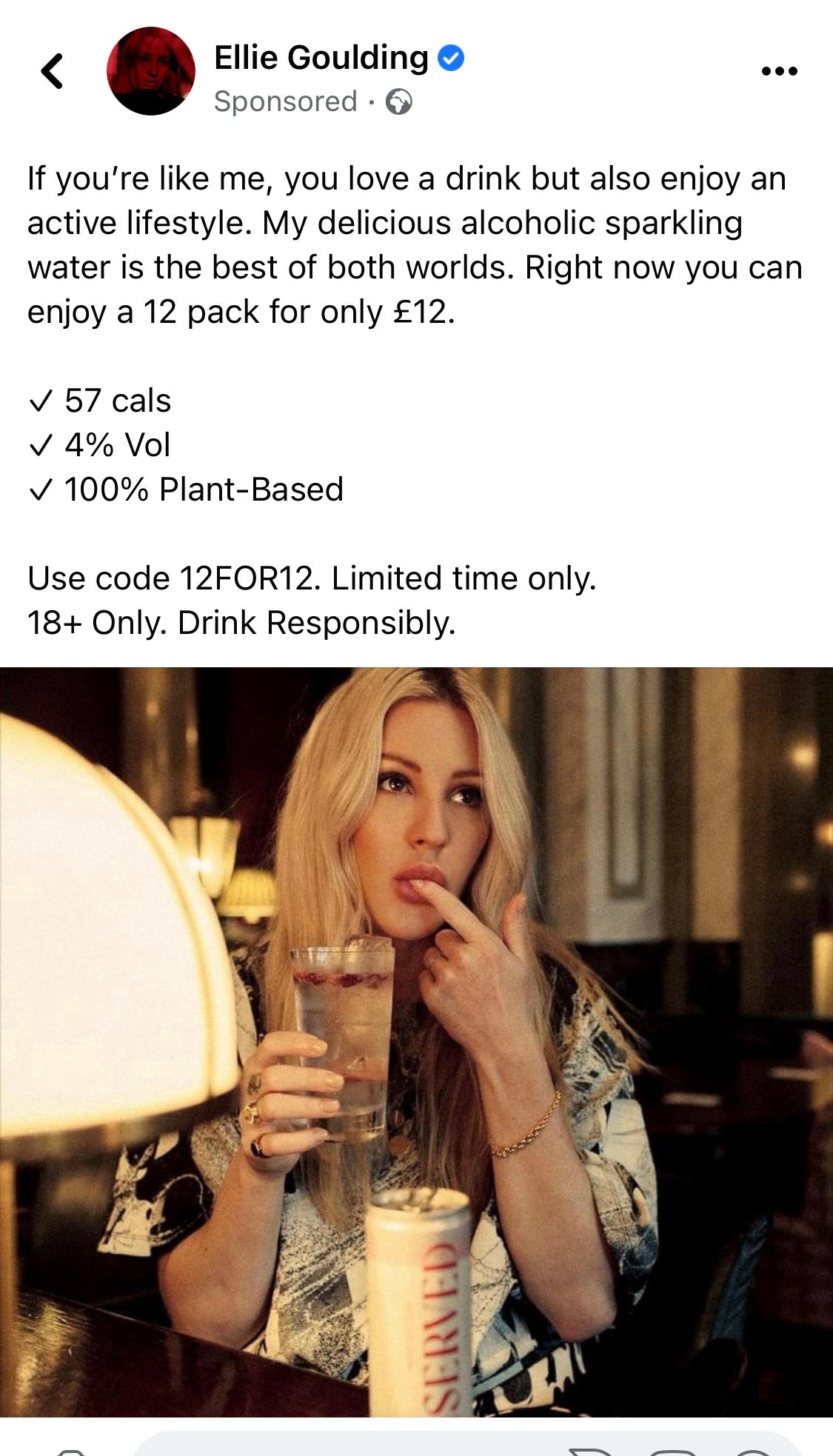Ellie Goulding’s alcohol brand banned from advertising on Facebook
Ads for Served Drinks were banned after the singer made nutritional claims that are not permitted for alcohol

Adverts for an alcohol brand on Ellie Goulding’s Facebook page have been banned after the singer claimed the drink is low in calories and contains no sugar.
The pop star, who is a founder and co-owner of Served Drinks, posted two ads for the alcoholic sparkling water on her Facebook page in February, the first one stating: “If you’re like me, you love a drink but also enjoy an active lifestyle. My delicious alcoholic sparkling water is the best of both worlds.”
The second read: “You guys know I love a drink, but I also really care about my well-being. Since I launched my alcoholic sparkling water there is no going back for me!”
A video of Goulding showed her saying: “I love a drink, as I talk about a lot on my social media, but I also care about my health … That’s why I want to tell you about my new drink Served. So, my new drink Served is a hard seltzer, it has 57 calories…”
Further text in the posts stated: “57 cals … four per cent vol.”
A separate email from Served Drinks, seen on 18 January, read: “Forget Dry January … Is dry January becoming a little dry? There’s no reason you can’t enjoy a drink without setting you back! Our drinks only have 57 calories, 0g sugar and are four per cent ABV and are the perfect choice for a tipple without all the guilt.”

The Advertising Standards Authority (ASA) received 21 complaints about the brand’s advertising, including that the calorie and sugar content statements were nutritional claims that are not permitted for alcoholic drinks, and that Goulding’s statements that she loves a drink while also enjoying an active lifestyle and caring about her wellbeing are general health claims that are also not allowed for alcoholic drinks.
Some complained that the email ad suggested that drinking alcohol might be indispensable and could overcome boredom by encouraging people to break Dry January.
Served Drinks said it understood that advertisers are allowed to provide factual information about the nutritional content of their products, including the calorific content, provided there is no suggestion that the drink has the particular beneficial property of being low in calories.
They said the posts on Goulding’s Facebook page were intended to describe her lifestyle and what is important to her and could not reasonably be interpreted as being about the product itself, and were therefore not general health claims.
The ASA said: “Because the ads included nutrition claims that the product was low in calories and contained no sugar, which were not permitted nutrition claims for alcohol products, we concluded that they breached the Code.”
It ruled that the three ads must not appear again in their current form, adding: “We told Served Drinks not to make health claims, or non-permitted nutrition claims, about alcoholic drinks or imply that alcohol could overcome boredom in their advertising.”
Served Drinks said: “We are committed to responsible advertising, and we work closely with organisations such as CAP (the Committee of Advertising Practice) in the development of campaign materials.
“While we are disappointed that the complaints were upheld in part, we respect the ASA’s ruling. All ads were removed immediately and will not feature again.”
Bookmark popover
Removed from bookmarks